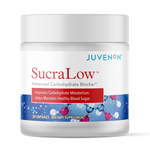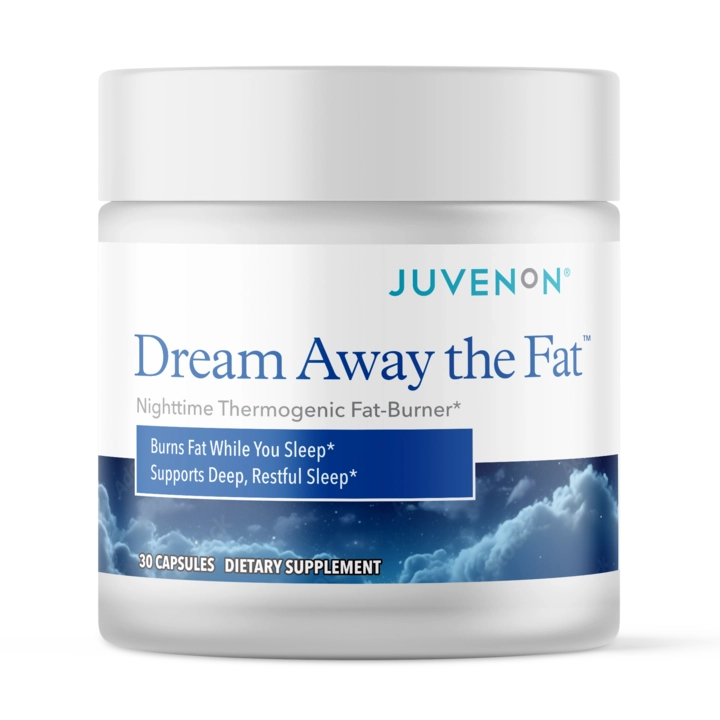Are you searching for a natural way to boost your overall performance? Ashwagandha, a revered Ayurvedic herb, has been gaining traction for its potential to enhance both physical and mental well-being. Known for its adaptogenic properties, ashwagandha helps the body manage stress, easing anxiety and encouraging relaxation. But can it also improve athletic performance?

Emerging studies suggest that ashwagandha may increase muscle mass and strength, particularly in men[1]. However, many people wonder: how long does it take to see results? Let’s dive into ashwagandha’s potential benefits and the timeline for effectiveness.
What is Ashwagandha?
Ashwagandha, orWithania somnifera, is an ancient herb with roots in Asia and Africa, often called "Indian ginseng," Celebrated for its adaptogenic properties, it’s known for promoting holistic health benefits.
Benefits of Ashwagandha
Ashwagandha has been studied extensively, particularly for its stress-relieving qualities and physical performance benefits. Here’s a closer look:
- Stress Reduction: As a potent adaptogen, ashwagandha helps the body handle stress. Studies show it can lower cortisol, the primary stress hormone, significantly[2].
- Improved Cognitive Function: Some research suggests that ashwagandha may enhance cognitive function, including memory and focus[3].
- Boosted Physical Performance: Athletes often turn to ashwagandha to improve strength, endurance, and recovery time. Studies have indicated that it can increase muscle mass and reduce muscle damage after exercise[4].
- Enhanced Sexual Health: Ashwagandha has been traditionally used to support sexual health in men. Some studies suggest it may improve sperm quality and testosterone levels[5].
Using Ashwagandha as a Supplement
Ashwagandha is available in various forms, including capsules, powders, and extracts. While it's generally considered safe for most people, it's essential to consult with a healthcare professional before starting any new supplement, especially if you have underlying health conditions or are taking medications.
Remember, while ashwagandha offers promising benefits, it's not a magic pill. A healthy lifestyle, including a balanced diet, regular exercise, and adequate sleep, is crucial for optimal well-being.
How Long Does Ashwagandha Take to Show Results?
The timeline for experiencing the benefits of ashwagandha can vary depending on several factors, including individual physiology, dosage, and the specific goals you're aiming to achieve.
The Role of Dosage and Frequency
To maximize the effects of ashwagandha, it's essential to follow the recommended dosage and frequency. While specific recommendations may vary, most studies have used dosages ranging from 300 to 1,200 milligrams daily. It's generally advised to divide this dosage into two or three equal doses throughout the day.
Timeframe for Results
While some people may notice subtle changes within a few weeks, it typically takes 4-8 weeks of consistent use to experience the full benefits of ashwagandha. This timeframe allows the herb to gradually accumulate in your system and exert its effects.
Remember, building strength and endurance takes time and dedication. While ashwagandha can be a valuable tool to support your fitness goals, it's not a quick fix. Consistent use, combined with a well-rounded workout routine and a healthy diet, is essential for optimal results.
It's important to note that individual responses to ashwagandha may vary. If you're not seeing the desired results after a few months, consider consulting with a healthcare professional to discuss potential adjustments to your dosage or supplement regimen.
Boosting Physical Performance with Ashwagandha
Research suggests that ashwagandha can be a valuable asset in your quest for improved physical performance. Here's how this ancient herb can potentially benefit your fitness goals:
- Increased Muscle Strength and Endurance: Studies have shown promising results for ashwagandha's ability to enhance muscle mass and strength. A study published in the National Institutes of Health database found that participants taking ashwagandha experienced significant increases in muscle strength compared to a placebo group[6].
- Improved Recovery: Ashwagandha's adaptogenic properties may also aid in faster recovery after exercise. Research indicates it can reduce muscle damage caused by strenuous workouts, allowing you to bounce back quicker and train harder.
- Enhanced Stamina: Some studies suggest that ashwagandha may improve VO2 max, the maximum amount of oxygen your body can utilize during exercise[7]. This translates to increased stamina and endurance during physical activities.
It's important to remember that ashwagandha offers a well-rounded approach to supporting your fitness journey. Beyond physical performance, research suggests it can also benefit your overall health by reducing stress, promoting sleep quality and boosting cognitive function.
Juvenon’s Alpha Gold Male leverages the power of 675 mg KSM-66, a potent form of ashwagandha extract, to naturally enhance physical performance by boosting testosterone levels. Its efficacy is underpinned by rigorous scientific research conducted by leading institutions such as UC Berkeley and the Salk Institute.
Improved Strength and Muscle Size
Ashwagandha has been shown to increase muscle mass and strength, particularly in individuals engaged in resistance training. A study published in the Journal of the International Society of Sports Nutrition found that participants who supplemented with ashwagandha extract experienced significant increases in muscle size and strength compared to a placebo group[8].
Improved Cognition, Memory and Motor Responses
Ashwagandha has been linked to improved cognitive function, including memory, focus, and reaction time. Research suggests ashwagandha extract may increase levels of neurotransmitters like acetylcholine, which play a crucial role in cognitive processes[9].
Reduced Stress and Anxiety with Better Sleep
Ashwagandha's ability to reduce stress and anxiety can indirectly benefit physical and cognitive performance. By lowering cortisol levels, ashwagandha can help improve mood, sleep quality, and overall well-being.
Enhanced Recovery Time
Ashwagandha's adaptogenic properties can help reduce muscle damage and inflammation after intense exercise, leading to faster recovery times. Studies have demonstrated that ashwagandha can lower levels of cortisol, the stress hormone, which can contribute to muscle breakdown.
Increased Testosterone Levels
In men, ashwagandha may help increase testosterone levels, a hormone essential for muscle growth and strength. Studies have shown that ashwagandha can improve sperm quality and testosterone levels in men with infertility.
Practice Safety When Taking Ashwagandha
While ashwagandha is generally safe for most people, it's essential to use it responsibly and consult with a healthcare professional before starting any new supplement, especially if you have underlying health conditions or are taking medications.
Potential Side Effects:
While rare, some people may experience side effects from ashwagandha, such as:
- Upset stomach
- Diarrhea
- Dizziness
- Drowsiness
Interactions with Medications and Conditions:
Ashwagandha may interact with certain medications, including:
- Sedatives and sleeping pills: Ashwagandha can enhance the sedative effects of these medications.
- Immunosuppressants: It may interfere with the effectiveness of immunosuppressant drugs.
- Thyroid medications: Ashwagandha can affect thyroid function and may interact with thyroid medications.
If you have any of the following conditions, it's advisable to consult with a healthcare professional before using ashwagandha:
- Autoimmune disorders: People with autoimmune conditions should use ashwagandha with caution, as it may stimulate the immune system.
- Thyroid disorders: Ashwagandha can affect thyroid function and may interact with thyroid medications.
- Pregnancy and breast-feeding: While limited research is available, it's best to avoid ashwagandha during pregnancy and breastfeeding unless directed by a healthcare professional.
Always follow the recommended dosage on the product label or as advised by a doctor. Exceeding the recommended dosage may increase the risk of side effects. By understanding the potential benefits and risks of ashwagandha and using it responsibly, you can maximize its potential to improve your overall health and well-being.
Get Strong Fast with Alpha Gold Male™ By Juvenon
Ashwagandha has emerged as a powerful natural tool for enhancing both physical and cognitive performance. Research suggests it can:
- Build Muscle and Boost Strength: Studies show ashwagandha can significantly increase muscle mass and strength, particularly when combined with resistance training.
- Speed Up Recovery: Its adaptogenic properties help reduce muscle damage and inflammation, leading to faster bounce-back after exercise.
- Sharpen Your Mind: Ashwagandha may improve memory, focus, and reaction time, thanks to its potential impact on key neurotransmitters.
- Manage Stress and Anxiety: By lowering cortisol levels, ashwagandha can indirectly improve mood, sleep quality, and overall well-being, ultimately benefiting performance.
- Enhance Testosterone Levels in Men: Studies suggest ashwagandha may increase testosterone levels in men, promoting muscle growth and strength.
While some may experience subtle changes within a few weeks, consistent use for 4-8 weeks is typically recommended for optimal results. Remember, building strength and endurance takes dedication alongside a healthy diet and exercise routine.
To unlock the potential of Ashwagandha and take physical performance to the next level, consider exploring high-quality natural supplements from reputable companies. Juvenon offers a wide range of performance-enhancing products formulated with carefully selected ingredients.
FAQs About How Long Ashwagandha Takes to Work
How long does it take for ashwagandha to work?
The timeline for experiencing the benefits of ashwagandha can vary depending on individual factors and the specific benefits you're looking for. In general, you might start noticing some effects within 2-4 weeks. However, it may take up to 6-8 weeks to experience the full effects.
Here's a breakdown of the potential timeline:
- Immediate Effects: Some people may experience a reduction in cortisol levels and improved sleep quality within the first few days or weeks of taking ashwagandha.
- Short-Term Effects: Within 2-4 weeks, you may start noticing a reduction in stress and anxiety levels, improved mood, and increased energy levels.
- Long-Term Effects: After 4-8 weeks of consistent use, you may experience more significant benefits, such as improved cognitive function, increased muscle mass and strength, and enhanced athletic performance.
It's important to consult with a healthcare professional before taking ashwagandha, especially if you have any underlying health conditions or are taking medications. They can help you determine the appropriate dosage and monitor for any potential side effects.
Can Ashwagandha repair nerve damage?
Ashwagandha is not a proven treatment for nerve damage. However, there is some research suggesting that it may have neuroprotective properties and may help promote nerve cell growth[10].
One study found that withanolide A, a compound found in ashwagandha, could help regenerate neurites and reconstruct synapses in damaged neurons. However, more research is needed to confirm these findings and to determine whether ashwagandha can effectively treat nerve damage in humans.
Does ashwagandha boost testosterone?
Yes, ashwagandha has been shown to increase testosterone levels in some studies. One study found that men who took ashwagandha for 8 weeks experienced a 15% increase in testosterone levels compared to a placebo group[11]. Another study found that ashwagandha increased testosterone levels in men with infertility.
Can I take 3 pills of ashwagandha a day?
Ashwagandha is available in several forms, including gummies, capsules, liquid drops, and powders that can be added to beverages. A recommended typical dose is 500 mg twice a day, no matter which form you choose.
References
[1]https://pmc.ncbi.nlm.nih.gov/articles/PMC8006238/
[3]https://pmc.ncbi.nlm.nih.gov/articles/PMC9565281/
[4]https://pmc.ncbi.nlm.nih.gov/articles/PMC4658772/
[6]https://pmc.ncbi.nlm.nih.gov/articles/PMC4658772/
[7]https://pmc.ncbi.nlm.nih.gov/articles/PMC7230697/






















